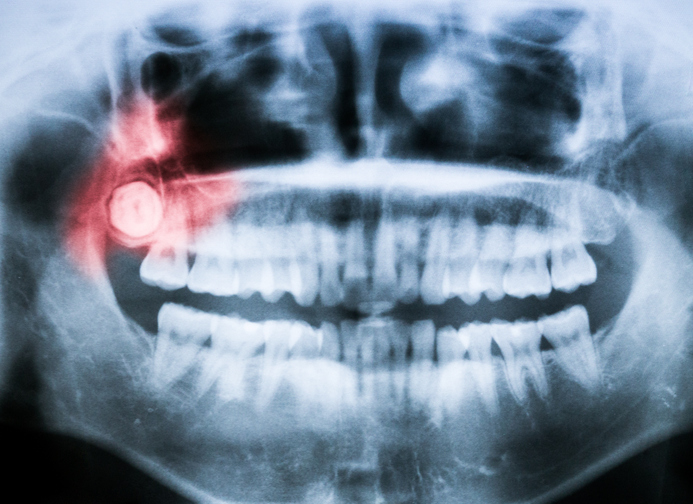
To pull or not to pull your wisdom teeth, that is the question. While many believe that wisdom teeth removal is a necessity, that’s not always the case.
In fact, whether or not you need to have your chompers pulled depends on several factors including formation, position, and overall health of the tooth.
You may be asking yourself, ‘Then why did my dentist suggest having them pulled?’ According to experts, this suggestion is based on age-old assumptions that once fully formed, wisdom teeth can cause serious problems.
Dr. Cherae Farmer-Dixon, DDS, MSPH, dean and professor of Meharry Medical College School of Dentistry, typically tells her patients, "If the wisdom teeth are not bothering you, don't bother them."
Of course, "not bothering you" must be put into context Dr. Farmer-Dixon cautions. It's possible, she explained during a recent interview with BlackDoctor.org (below), "They could not be bothering you, but because of how they're positioned over time they could have bone resorption and cause problems down the road." Dental x-rays are the only way to know what's really going on with your wisdom teeth.
In order to understand the purpose of wisdom teeth removal, you need to understand the problems that can accompany the formation of wisdom teeth, like overcrowding in the mouth, partial formations (creating a prime place for bacteria to flourish), cysts and chronic pain.
You should consider having your wisdom teeth pulled when:
Your wisdom teeth don’t fit in your mouth.
Most adults have room in their mouth for about 28 teeth before their wisdom teeth erupt. Add four wisdom teeth and there are now 32 teeth competing for space in your mouth.
If your jaw isn’t large enough, the wisdom teeth can become impacted, which results in one of two things. One, they are either unable to fully form, or two, they become misaligned. In this case, having your wisdom teeth pulled will ensure all your teeth sit well in your jaw.
RELATED: Be Smart About Your Wisdom Teeth
Your wisdom teeth don’t come in straight.
For some, your wisdom teeth may come in fully, but they form horizontally. This can cause pressure on neighboring teeth, eventually causing your teeth to shift and move over time.
Other times, teeth may only partially come in. When this happens, a pathway is created between your teeth and gums making it difficult to brush. This area quickly becomes a breeding ground for bacteria, leading to tooth decay.
Infection
Often chronic pain is an underlying sign of an infection like cysts forming around
the teeth, tooth decay, gum disease, or worse, a tumor. If you are experiencing any of these as a result of your wisdom teeth, it may be a good idea to have them removed.
RELATED: What Your Teeth Really Say About You

What to expect when having your teeth pulled
If you decide to move forward with having your wisdom teeth removed, it is important to consider the following:
Cost: Because a cleaning in itself can run you upwards of $100, it’s important to ensure you’re getting the best bang for your buck, ensuring that the dentist is both licensed for the procedure, has a high success rate, and has educated you on both the procedure, pre-surgical care (if any) and what to expect afterward (rest, meds, etc.)
Time: How long will the procedure take? What is the recovery time? This will likely depend on the number of teeth you are having pulled, but in most cases, plan for several hours.
Anesthesia: To avoid discomfort, you’ll typically undergo either local or general anesthesia during the procedure. If you undergo general anesthesia, you’ll need to have someone accompany you, as the treatment can make you groggy and impair your ability to drive yourself home.
Meanwhile, there are some occasions when wisdom teeth removal is just a waste of time and money. You can consider keeping your wisdom teeth for the rest of your life if:
- Your teeth have grown in completely and line up well with the rest of your teeth.
- You don’t have an underbite, an overbite, or difficulty chewing with your wisdom teeth.
- You’re able to thoroughly clean your wisdom teeth and the surrounding teeth.
- Your wisdom teeth are not causing damage to surrounding teeth.
- Your x-rays show that all is well with your teeth.
Consult your dentist to learn which option is best for you.









